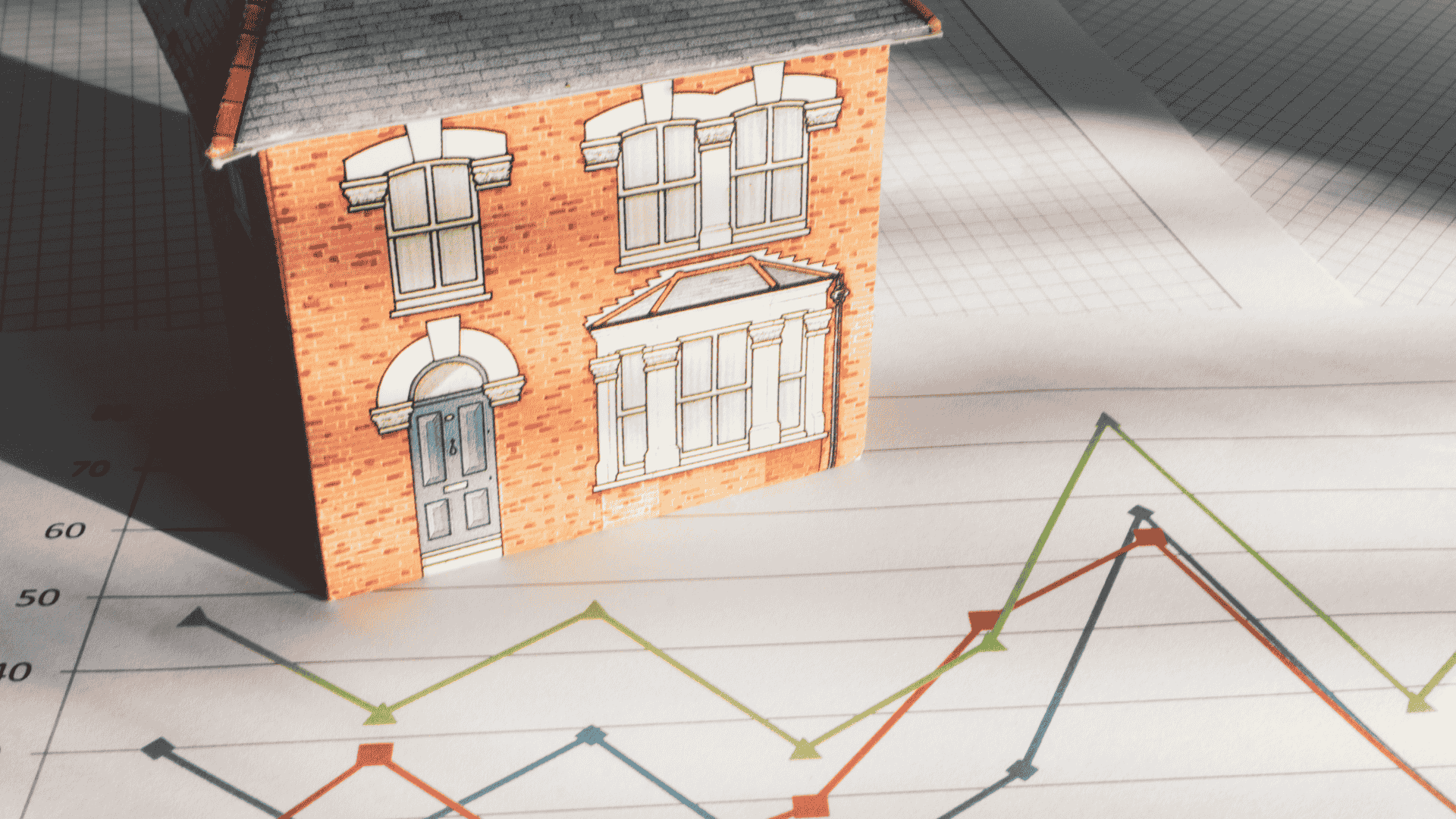U.S. Housing Market Expert Expect “Major Reset” This Summer
Real Estate Expert Predicts Major Housing Market Reset in 2025: Implications for International Investors
For international real estate investors, understanding shifts in the U.S. housing market is crucial for making informed U.S. property investment decisions. After years of rapid growth and high prices, a prominent real estate expert is now forecasting a “major housing market reset” in 2025.
Let’s break down what this reset means, the factors driving it, and its implications for homeowners, potential buyers, and especially for real estate investors looking for consistent cash flow and long-term wealth from U.S. rental properties.
Investment Properties: Browse Turnkey Rental Properties in our Online Portal
Key Takeaways: The 2025 Housing Market Reset
- Market Rebalancing: A significant shift is expected towards a more balanced, potentially buyer-friendly housing market in 2025.
- Rising Inventory: Housing supply is now increasing, outpacing buyer demand. In May, there were 34% more sellers than buyers, leading to a surplus of 500,000 homes.
- Seller Adjustments: Sellers are becoming more willing to negotiate and reduce prices as market dynamics change.
- Longer Selling Times: Homes are expected to take longer to sell compared to recent years.
- First Balanced Market Since 2016: Realtor.com predicts 2025 will mark the first truly balanced housing market in nearly a decade.
- Investor Opportunity: This reset could create new opportunities for international real estate investors seeking more favourable entry points and negotiation power.
Related: U.S. Mortgage Rates Forecast and Expert Predictions for 2025, 2026, 2027 and 2028
The Expert’s Prediction: A Major Housing Market Reset
The U.S. housing market has faced significant challenges recently. High home prices combined with elevated mortgage rates have made many buyers hesitant. Similarly, many sellers have been waiting for more favourable conditions, often holding onto lower interest rates from previous mortgages.
However, a notable shift is now underway. Danielle Hale, Chief Economist at Realtor.com, spoke to TheStreet.com, and she predicts a “major housing market reset” in 2025. This reset indicates a move away from the intense seller’s markets seen in previous years.
Key Market Indicators of the Reset
The core of this predicted reset lies in changing supply and demand dynamics:
- Increasing Inventory: Housing inventory is currently on the rise.
- Outpacing Demand: The number of available homes is now growing faster than the demand from buyers.
- Seller-to-Buyer Ratio (May): In May, there were 34% more sellers than buyers, contributing to a surplus of approximately 500,000 homes on the market.
“If you use months supply — the hallmark metric of whether or not we are in a buyer’s or seller’s market — we are not in a buyer’s market. The U.S. had 4.4 months supply in May; historically, a buyer’s market starts at 6 months supply,” Hale explained. “While some are calling this housing market a buyer’s market, I would say the market is shifting in a buyer-friendly direction.”
This growing surplus suggests that sellers are increasingly needing to adjust their expectations. They are becoming more open to negotiations and price reductions to attract buyers in this evolving landscape.
Related: U.S. Real Estate Markets Forecast and Expert Predictions Through 2030
Driving Factors Behind the Housing Market Reset
Several interconnected factors are contributing to this predicted housing market rebalancing:
- Affordability Challenges: Years of rapidly rising home prices, coupled with higher mortgage interest rates, have significantly impacted affordability for many potential buyers. This has naturally cooled demand.
- “Lock-in Effect” Easing (Gradual): While many homeowners with low mortgage rates are still reluctant to sell, the increasing inventory suggests that some are beginning to enter the market. This could be due to life changes, job relocations, or simply needing to move.
- Builder Activity: In some markets, new home construction may be adding to the overall supply, further easing inventory constraints.
- Market Normalization: After an unprecedented period of rapid appreciation, the market is returning to more typical conditions. Economists suggest that 2025 will be the first truly balanced housing market since 2016, according to Realtor.com. Historically, periods of buyer’s or seller’s markets tend to persist for a while, and this rebalancing suggests a new, more stable phase.
This shift will likely mean longer selling times for properties and a greater likelihood of price reductions for sellers.
Related: 7 Hottest U.S. Real Estate Markets for Rental Property Investors in 2025
Implications for Different Market Participants
A housing market reset has distinct implications for various groups, particularly for international real estate investors.
For Current Homeowners
- Adjusted Expectations: Homeowners considering selling may need to be realistic about their home’s value and the time it will take to sell. The days of rapid, competitive bidding might be behind us.
- Focus on Fundamentals: For those not planning to sell, the “reset” primarily affects the paper value of their home. Maintaining a stable financial situation and manageable mortgage payments remains key.
For Potential Homebuyers
- Increased Leverage: Buyers are gaining more power in negotiations. This could mean more opportunities to purchase homes at or below asking price.
- More Choices: A growing inventory means more options and less pressure to make quick decisions.
- Patience Rewarded: Waiting for further market adjustments could lead to even more favourable pricing. However, timing the absolute bottom of any market is always difficult.
For Real Estate Investors
For international real estate investors, a market reset can present both challenges and significant opportunities:
- Better Entry Points: Lower prices and increased negotiation power could mean more attractive acquisition costs for U.S. rental properties. This directly impacts your potential cash flow and long-term wealth.
- Focus on Fundamentals: With a more balanced market, the quality of the property, its location, and its ability to generate consistent cash flow become even more paramount. Avoid speculative purchases.
- Due Diligence is Key: Thorough market research, property inspections, and careful financial analysis are always important, but especially so in a transitioning market.
- Opportunity for Portfolio Expansion: For investors with ready capital, a reset can be an opportune time to expand a portfolio of U.S. rental properties at more favourable valuations.
In essence, this reset could create a more favourable environment for thoughtful, strategic international real estate investors who prioritize long-term value and consistent cash flow.
Related: The Best U.S. Real Estate Markets for Non-Resident and Foreign National Investors
Conclusion: Adapting to the 2025 Housing Market Reset
The predicted “major housing market reset” in 2025 signifies a shift towards a more balanced environment, driven by increasing inventory and changing seller dynamics. This transition, while potentially challenging for some, can open up new avenues for international real estate investors.
With more negotiation power and potentially better entry points, focusing on fundamentally sound U.S. rental properties that promise consistent cash flow will be key. By staying informed and strategic, investors can leverage this market reset to build or expand their portfolios and achieve long-term wealth in the evolving U.S. housing landscape.
Previous Article: U.S. Mortgage Rate Forecast for July: Will Rates Rise or Fall
GROW YOUR WEALTH WITH U.S. REAL ESTATE
Start your U.S. real estate investment journey today with high-quality cashflow real estate. Book a llamada estratégica gratuita 1:1 con un miembro de nuestro equipo directivo para discutir su estrategia personalizada.
“Having personally invested in over 120 US rental properties from overseas, I know the true value of getting the right advice and support.
David Garner – Cashflow Rentals
GROW YOUR WEALTH WITH U.S. REAL ESTATE
Start your US real estate investment journey today, and book a llamada estratégica gratuita 1:1 with a member of our senior management team.
“Having personally invested in over 120 US rental properties from overseas, I know the true value of getting the right advice and support.
David Garner – Cashflow Rentals

Frequently Asked Questions (FAQs) About the 2025 Housing Market Reset for Investors
- Q1: What is the “major housing market reset” predicted for 2025? A1: A “major housing market reset” in 2025 refers to a significant shift towards a more balanced, potentially buyer-friendly market, driven by increasing housing inventory and a change in seller dynamics after years of intense seller’s markets.
- Q2: What is the current trend in housing inventory and buyer demand? A2: Housing inventory is currently increasing and outpacing buyer demand. In May, there were 34% more sellers than buyers, resulting in a surplus of approximately 500,000 homes on the market.
- Q3: How are sellers reacting to the changing market dynamics? A3: As the market shifts, sellers are becoming more open to negotiation and price reductions to attract buyers, moving away from the competitive bidding seen in previous years.
- Q4: What does Realtor.com predict for the housing market in 2025? A4: Realtor.com predicts that 2025 will be the first truly balanced housing market since 2016, indicating a return to more typical conditions after a period of rapid appreciation.
- Q5: What are the implications of this market reset for potential homebuyers? A5: Potential homebuyers can expect increased leverage in negotiations, more choices due to rising inventory, and potentially more favorable pricing. Patience could be rewarded as prices may continue to adjust.
- Q6: How does this housing market reset create opportunities for international real estate investors? A6: For international investors, the reset can lead to better entry points and more attractive acquisition costs for U.S. rental properties. This can positively impact potential cash flow and long-term wealth building, especially for those with ready capital.
- Q7: What factors are driving this housing market rebalancing? A7: Key factors include persistent affordability challenges due to high prices and mortgage rates, a gradual easing of the “lock-in effect” (homeowners with low rates selling), ongoing builder activity, and a natural market normalization after an unprecedented boom.
- Q8: What is the “lock-in effect” in the housing market? A8: The “lock-in effect” describes the reluctance of homeowners with very low mortgage interest rates (secured before recent rate hikes) to sell their current homes, as doing so would mean taking on a new mortgage at a significantly higher rate.
- Q9: What should real estate investors prioritize in a transitioning market like this? A9: Investors should prioritize properties with strong fundamentals, focusing on quality, location, and the ability to generate consistent cash flow. Thorough due diligence, including market research and financial analysis, is crucial.
- Q10: What are some common loan types available for foreign nationals investing in U.S. property? A10: Common loan types for foreign nationals include specific Foreign National Loans, ITIN Loans (for those with an Individual Taxpayer Identification Number), and DSCR Loans (which qualify based on the property’s potential rental income).







![USA Property Investment for Foreign Buyers [2025 Guide]](https://cashflowrentals.net/wp-content/uploads/2025/07/USA-Property-Investment-for-Foreigners-Expert-2025-Guide-500x383.png)



